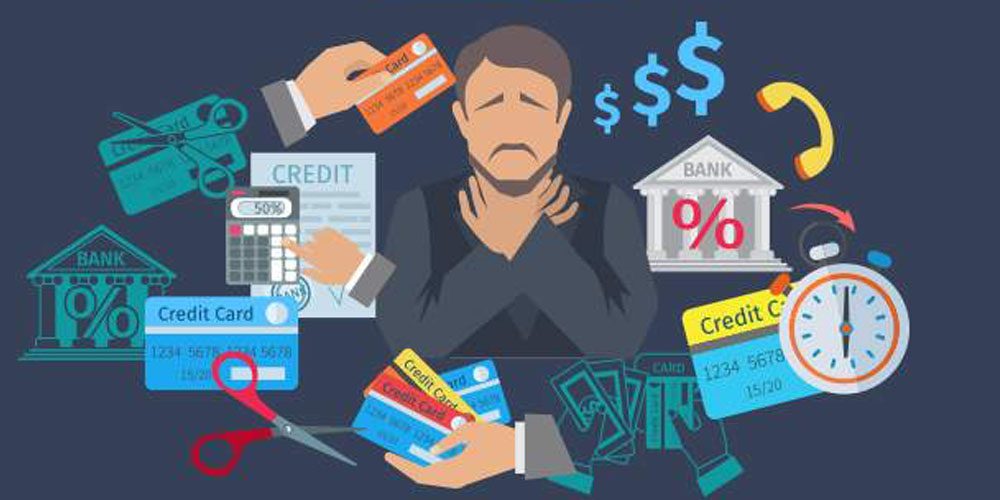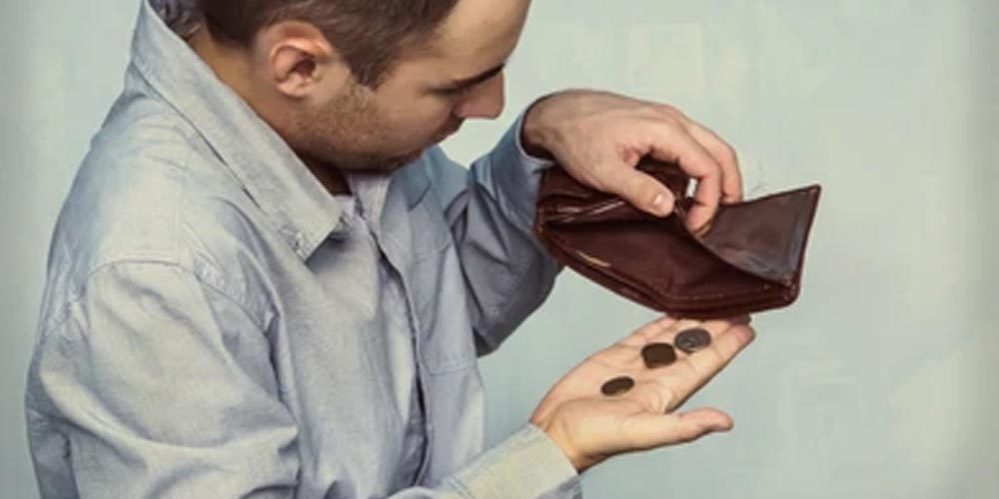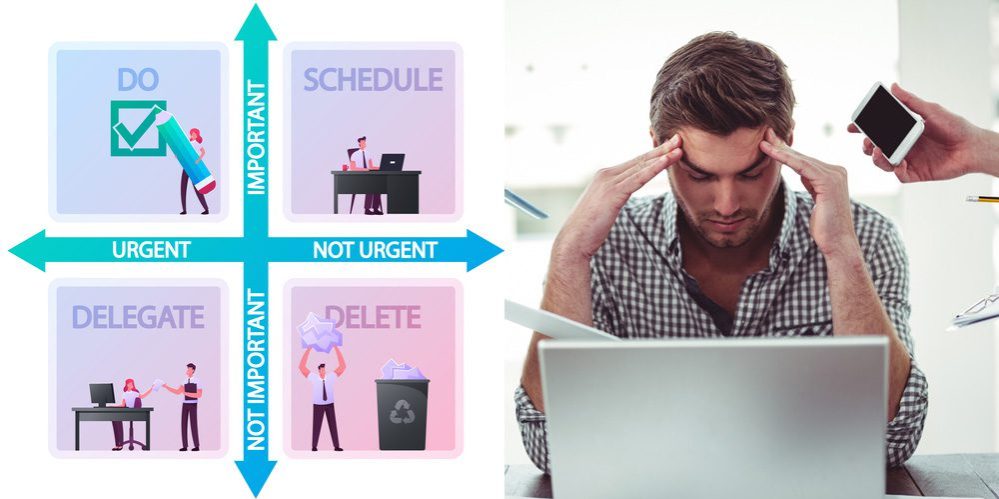Are you tired of living paycheck to paycheck? Do you feel like you're drowning in debt and financial worries? You're not alone. Millions of people around the world struggle with debt, and it can be a heavy burden to carry.
Debt can make you feel helpless, stressed, and anxious about your future. It can affect every aspect of your life – from your relationships to your mental health. But it doesn't have to be this way. You can take control of your finances and crush your debt once and for all.
In this blog post, I will share with you practical tips and strategies on how to pay off debt fast and take control of your finances. Whether you have credit card debt, student loans, or any other type of debt, these tips will help you create a plan that works for you.
I know firsthand the stress that comes with being in debt. I've been there myself – struggling to make ends meet, feeling like I was never going to get out of the hole I had dug myself into. But with hard work and determination, I was able to pay off my debts and achieve financial freedom.
And now, I want to help you do the same. In this blog post, we'll explore how to create a budget that works for you, ways to cut back on expenses without sacrificing quality of life, how to negotiate with creditors for lower interest rates or payment plans that work better for your situation.
But most importantly – we'll talk about mindset shifts that need to happen in order for real change to occur. Because when it comes down to it- getting out of debt is not just about the numbers but also about changing our behavior patterns so that we don't fall into the same traps again.
So if you're ready to take control of your finances once and for all – let's get started!
Understanding the Psychology of Debt: Why We Overspend and How to Break the Cycle
Debt is not just a financial issue – it's also a psychological one. Many of us overspend and accumulate debt due to emotional triggers such as stress, anxiety, or even boredom. Understanding the psychology of debt is crucial to breaking the cycle and achieving financial freedom.
One common reason why people overspend is due to emotional spending. When we feel stressed or anxious, we may turn to shopping as a way to cope with our emotions. This can lead to impulsive purchases that we don't really need or can't afford.
Another factor that contributes to overspending is social pressure. We live in a society that values material possessions and status symbols, which can create pressure to keep up with the Joneses. We may feel like we need certain things (like a new car or designer clothes) in order to fit in or impress others.
The problem with this mindset is that it leads us down a path of never-ending consumption. We buy things we don't need, using money we don't have, in order to impress people who don't really care about us. And before we know it, we're drowning in debt.
So how do we break this cycle? The first step is recognizing the emotional triggers that lead us to overspend. When you feel the urge to make an impulse purchase, take a moment to pause and ask yourself – am I buying this because I really need it, or am I trying to fill an emotional void?
If you find yourself consistently overspending due to emotional triggers, consider finding healthier ways to cope with stress and anxiety. This could be through exercise, meditation, therapy or any other activity that helps you relax and unwind without resorting to shopping.
Another important step in breaking the cycle of debt is changing our mindset around money and consumption. Instead of valuing material possessions as a way of defining success or happiness, focus on experiences and relationships instead.
This doesn't mean you have to give up all material possessions – but it does mean being more intentional about what you buy and why you buy it. Consider adopting minimalist principles by decluttering your home and living with less stuff overall.
Finally, it's important to create a budget that works for your lifestyle while still allowing you room for savings and debt repayment. Be honest with yourself about your income and expenses, and find areas where you can cut back without sacrificing quality of life.
In conclusion, understanding the psychology of debt is critical if you want to break free from the cycle of overspending and achieve financial freedom. By recognizing your emotional triggers around spending, changing your mindset around money, adopting minimalist principles when possible and creating an effective budget- You will be able to crush your debt once and for all.
Here are the 8 steps that help you get rid of debt fast:
1. Refinancing: Your Key to Paying off Debt Faster
If you're struggling with debt, refinancing may be the solution you've been looking for. Refinancing allows you to replace your current high-interest loans with a new, cheaper loan. By doing so, you can lower your monthly payments and reduce the total amount of interest you'll pay over time.
For example, let's say you have $10,000 in credit card debt at an interest rate of 20%. If you continue making minimum payments, it will take over 13 years to pay off the debt and cost you almost $15,000 in interest. However, if you refinance that debt with a personal loan at an interest rate of 10%, you could save thousands of dollars in interest and pay off the debt much faster.
But how do you go about refinancing? First, start by shopping around for lenders who offer personal loans or balance transfer credit cards with lower interest rates than what you're currently paying. Next, compare the costs and terms of each loan to find the best option for your needs.
It's important to note that refinancing isn't always the right choice for everyone. If your credit score is low or your income is unstable, it may be difficult to qualify for a new loan with favorable terms. Additionally, some lenders charge fees for refinancing that could offset any savings from a lower interest rate.
Overall, though, refinancing can be a powerful tool for paying off debt faster and more affordably. Don't hesitate to explore this option if you're struggling with high-interest debts – it could make all the difference in achieving financial freedom.
2. Creating a Budget: The First Step to Reduce Debt
One of the most effective ways to pay off debt fast, even if you're broke, is to create a budget and stick to it. A budget helps you track your income and expenses, so you can identify areas where you may be overspending and find ways to cut back.
To start creating a budget, first list out all of your sources of income, including your salary, any side hustles or freelance work, and any government benefits you may receive. Next, list out all of your monthly expenses, including rent/mortgage payments, utilities, groceries, transportation costs, entertainment expenses, and any debt payments.
Once you have a clear picture of your income and expenses, look for areas where you can cut back. For example, could you cook at home more often instead of eating out? Could you take public transportation or walk instead of driving? Are there subscriptions or memberships that you're not using but still paying for?
By making small changes like these and sticking to your budget each month, you can free up extra money that can be used to pay down debt faster. Additionally, having a budget in place can help prevent future debt by keeping your spending in check.
Creating a budget doesn't have to be complicated – there are plenty of free online tools and apps available that make it easy to track your finances. By taking this important step towards financial freedom, you'll be well on your way towards achieving your goals and living the life you want.
3. Declutter Your Life and Pay off Debt: How Selling Unused Belongings Can Help
If you're looking for a quick and easy way to make some extra cash to pay off debt, look no further than your own home. Chances are, you have plenty of unused belongings taking up space in your closets, garage, or storage unit that could be sold for a profit.
Selling items on eBay or Craigslist is a great way to get rid of unwanted clutter while also earning money. Clothes, furniture, electronics, and even old textbooks can all be sold online for a fair price. Plus, the process is relatively simple – just take some photos of the item, write a description, set a price, and wait for the offers to roll in.
Not only does selling unused belongings help you earn extra cash, but it can also have psychological benefits as well. A cluttered home can lead to stress and anxiety, while decluttering can promote feelings of calm and satisfaction.
To get started with selling online, first identify which items you no longer need or use. Be honest with yourself about what has value and what doesn't – if an item hasn't been used in over a year or doesn't bring you joy anymore, it's probably time to sell it.
Next, do some research on eBay or Craigslist to see how much similar items are selling for. This will give you an idea of how much you could realistically earn from each sale.
Finally, take some high-quality photos of each item and write clear descriptions that highlight its features and condition. Be honest about any flaws or defects – this will help build trust with potential buyers.
In conclusion, selling unused belongings on eBay or Craigslist is an effective way to pay off debt while also decluttering your life. By taking small steps towards financial freedom like this one, you'll be well on your way towards achieving your goals and living the life you want.
4. Expert Advice: Negotiating Lower Rates with Your Creditors
As a financial advisor with over 30 years of experience, I can tell you that negotiating lower rates with your creditors is one of the most effective ways to pay off debt faster. By reducing your interest rates, you'll be able to save money on each payment and make more progress towards becoming debt-free.
To start the negotiation process, gather all of your credit card statements and identify which cards have the highest interest rates. These are the ones you should focus on negotiating first.
Next, call each creditor and explain that you're struggling to make ends meet and would like to negotiate a lower interest rate. Be polite but firm – remember that creditors want to get paid, so they may be willing to work with you.
When negotiating, be specific about what you're asking for. For example, ask for a reduction in your interest rate from 18% to 12%, or ask for a temporary suspension of payments until your financial situation improves.
If the creditor is unwilling to negotiate, don't give up – try calling back at a later time or speaking with a supervisor. You may also want to consider working with a credit counseling agency or debt settlement company that can negotiate on your behalf.
It's important to note that negotiating lower rates may not always be possible, especially if you have a history of missed payments or other credit issues. However, it's always worth trying – even small reductions in interest rates can add up over time and help you become debt-free faster.
5. Take on extra work or start a side hustle
As a life and business coach who has helped hundreds of people find the right side hustle, I can tell you that taking on extra work is a powerful way to pay off debt faster. By earning more money, you'll be able to make larger payments towards your debt and reduce the amount of time it takes to become debt-free.
The first step in finding the right side hustle is identifying your strengths and passions. What are you good at? What do you enjoy doing? By answering these questions, you can start to explore different side hustles that align with your skills and interests.
Next, consider the amount of time you have available for a side hustle. Are you willing to work evenings or weekends? Do you have any hobbies or talents that could be turned into a profitable venture?
Once you've identified potential side hustles, do some research to determine how much money you could realistically earn from each one. This will help you prioritize which opportunities are worth pursuing.
Some popular side hustles include freelancing, tutoring, pet-sitting, selling handmade goods online, and driving for ride-sharing services like Uber or Lyft. However, there are countless other options out there – the key is finding one that works for your unique situation.
It's important to note that starting a side hustle may require an initial investment of time or money. However, if done correctly, it can pay off in dividends over time and help you achieve financial freedom.
6. Canceling Unnecessary Subscriptions and Memberships to Save Money
Canceling unnecessary subscriptions and memberships is a simple yet effective way to save money and pay off debt faster. As an experienced financial advisor, I've seen firsthand how these small expenses can add up over time and drain your bank account.
To start, take inventory of all the subscriptions and memberships you currently have. This may include things like gym memberships, streaming services, magazine subscriptions, and more.
Next, evaluate each subscription or membership and ask yourself if it's truly necessary. Are you using it regularly? Is it providing value to your life? If not, consider canceling it.
When canceling a subscription or membership, be sure to read the fine print carefully. Some companies may require advance notice or charge cancellation fees. Make sure you understand the terms before taking action.
It's also important to note that canceling subscriptions and memberships may not always be enough to solve your financial problems – especially if you have significant debt. However, every little bit helps – even saving $10 or $20 per month can add up over time and make a big difference in your overall financial health.
7. Money-Saving Tip: Brown Bag Your Lunch Instead of Eating Out Every Day
Eating out for lunch every day may be convenient, but it can also be expensive – especially if you're trying to pay off debt or save money. By brown bagging your lunch instead, you can save a significant amount of money over time and take control of your finances.
To start, plan out your weekly meals in advance and make a grocery list. This will help you stay organized and ensure that you have everything you need on hand to prepare healthy and satisfying lunches.
When packing your lunch, aim for a balance of protein, fiber, and healthy fats to keep you feeling full and energized throughout the day. Some easy options include salads with grilled chicken or tofu, quinoa bowls with roasted vegetables and avocado, or whole grain sandwiches with hummus and veggies.
Don't forget to pack some snacks as well – things like fruit, nuts, or cut-up veggies with hummus are great options for keeping hunger at bay between meals.
By brown bagging your lunch instead of eating out every day, you can easily save $50 or more per week – which adds up to over $2,500 per year! This extra money can then be put towards paying off debt or reaching other financial goals.
8. Priority Task: Stop Using Your Credit Cards
As a financial advisor, I've seen firsthand how credit card debt can quickly spiral out of control and wreak havoc on your finances. If you're serious about paying off debt and achieving financial freedom, stopping the use of your credit cards should be a top priority.
Credit cards can be tempting – they offer convenience and rewards for spending money. However, the interest rates on these cards can be exorbitant, making it difficult to pay off the balance in full each month.
To start breaking the cycle of credit card debt, take a hard look at your current spending habits. Are you using your credit cards to make unnecessary purchases? Are you relying on them to cover everyday expenses? If so, it's time to make some changes.
One strategy is to switch to using cash or a debit card for all of your purchases. This will help you stay within your budget and avoid accumulating more debt.
Another option is to consolidate your credit card debt into a single loan with a lower interest rate. This can make it easier to pay off the balance over time and get back on track financially.
No matter which strategy you choose, it's important to stay committed and focused on your goal of becoming debt-free. Remember that every small step counts towards achieving success – even if it means cutting up your credit cards or leaving them at home when you go shopping.
What are you struggling with financially? Write your biggest challenges in the comments.
From Debt to Financial Freedom: How to Make Change Last
Congratulations! You've made it out of debt and are on your way to financial freedom. But now what? It's important to realize that becoming debt-free is just the first step in a long journey towards financial stability and success.
One of the biggest challenges after paying off debt is making sure you don't fall back into old patterns. It's all too easy to slip back into overspending or taking on new debt if you're not intentional about creating new habits, beliefs, and patterns.
So how do you make change last? The key is to focus on mindset shifts, new behaviors, and ongoing education. Here are some tips:
- Change your money mindset: One of the most important things you can do after becoming debt-free is to shift your mindset around money. Instead of seeing it as a source of stress or scarcity, view it as a tool for creating the life you want. Cultivate an abundance mindset by focusing on gratitude for what you have rather than what you lack.
- Adopt new behaviors: In order to make lasting change, it's important to adopt new behaviors around spending, saving, and investing. This could mean automating your savings, setting up a budgeting system that works for you or learning more about investing.
- Keep learning: Financial education doesn't end once you become debt-free – in fact, it's just beginning! Stay up-to-date with personal finance blogs and podcasts, read books by experts in the field and attend workshops or seminars whenever possible.
- Surround yourself with positive influences: Your environment plays a big role in shaping your beliefs and behaviors around money. Surround yourself with people who support your goals and values when it comes to finances- this will help keep you motivated when times get tough.
- Celebrate milestones along the way: Finally, take time to celebrate small victories along the way – this can be motivating as well as rewarding! Whether it's reaching a savings goal or paying off another loan- It’s always good to acknowledge the progress made towards financial freedom.
Making lasting change isn't easy – but it's worth it! By focusing on mindset shifts, adopting new behaviors and continuing your financial education- You will be able to maintain control over your finances while enjoying financial freedom at its best.
Being debt-free is just one part of achieving complete financial freedom; however, if done right -it can pave the way towards greater success down the road.

















